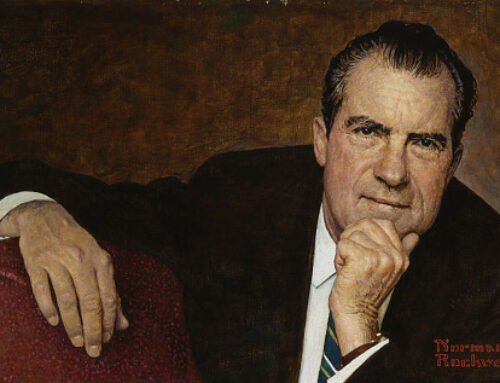Grover Cleveland was the 22nd and 24th President of the United States, serving as the only President to serve non-consecutive terms. He was born in Caldwell, New Jersey, in 1837, and grew up in a politically active family. After completing his studies at Williams College, Cleveland entered the legal profession and began practicing law in Buffalo, New York.
In the 1870s, Cleveland entered politics and quickly rose through the ranks. He served as Sheriff of Erie County and later as Mayor of Buffalo. In 1882, he was elected Governor of New York, and in 1884, he was nominated as the Democratic candidate for President.
Cleveland was elected President in 1884, defeating his Republican opponent, James G. Blaine. As President, Cleveland is perhaps best known for his efforts to reform the civil service and reduce government spending. He vetoed a bill that would have provided pensions to Civil War veterans, arguing that the government should not be responsible for supporting able-bodied citizens. He also vetoed a bill that would have provided subsidies to farmers, arguing that the government should not be involved in the business.
Despite these efforts to reduce government involvement, Cleveland faced criticism from both parties, and he was defeated in the 1888 election by Benjamin Harrison. However, he was re-elected in 1892, defeating Harrison in a rematch.
After leaving office in 1897, Cleveland returned to private life and later served as a mediator in several international disputes. He passed away in 1908 at the age of 71. He is remembered as a dedicated public servant who worked to reform the civil service and reduce government spending.
“Grover Cleveland believed that the government could best contribute to prosperity by not interfering with the free functioning of economic forces.” – Historian Frank Freidel in “Our Country’s Presidents”
Grover Cleveland went from the mayor of Buffalo, New York (1882) to Governor of New York (1883) to President of the United States (1885). All within 3 years. As mayor of Buffalo, New York, Grover Cleveland was called “The Veto Mayor” due to his propensity to veto any bill that he saw as a raid on the public treasury.
During his first term as president, Cleveland faced a financial crisis when the stock market crashed in 1887. He responded by urging Congress to reduce tariffs and increase the money supply, which helped stabilize the economy.
The financial crash of 1887, also known as the Panic of 1887, was a brief but severe economic downturn that occurred in the United States. The crash was caused by a combination of factors, including over-speculation in the stock market, a decline in the price of silver, and the tightening of credit by banks.
The impact of the crash was felt throughout the economy, with numerous businesses and banks failing and many people losing their jobs. The crisis also had international repercussions, as it led to a decline in foreign investment in the United States.
In response to the crisis, President Grover Cleveland urged Congress to pass measures to increase the money supply and reduce tariffs. He also authorized the issuance of bonds to help stabilize the economy and prevent a run on the gold reserves of the U.S. Treasury.
Cleveland’s efforts were successful in stabilizing the economy and preventing a full-blown depression. However, the measures he took were criticized by some as being insufficient, and the economy remained in a state of uncertainty for several years afterward.
Overall, the Panic of 1887 highlighted the need for greater financial regulation and the dangers of over-speculation in the stock market. It also demonstrated the importance of government intervention in times of economic crisis, a lesson that would be put to the test again during the Great Depression of the 1930s.




